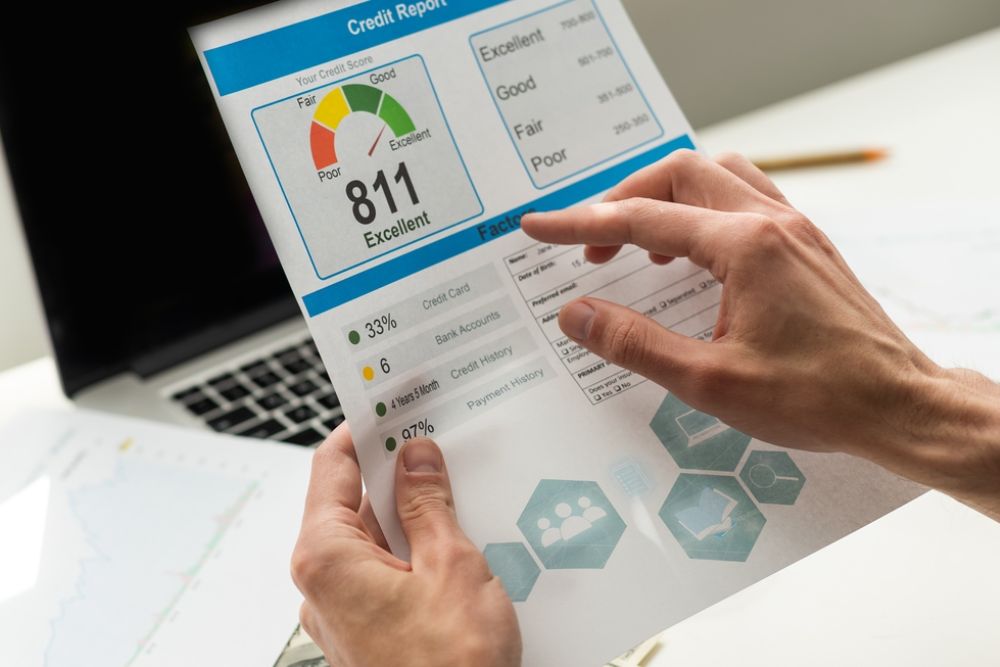Your credit score isn’t just a number—it’s a financial passport. Whether you’re applying for a loan, renting an apartment, or trying to get the best interest rates, your score can make or break your chances. While long-term credit habits build the strongest foundation, there are several strategic moves you can make right now to boost your score within just 30 days.
Here’s how to give your credit profile a fast lift—without complicated tricks or waiting years to see results.
Check Your Credit Report for Errors
The first step is to know exactly where you stand. Order your credit report from all three major bureaus—Equifax, Experian, and TransUnion. You can access one free report per bureau every year at AnnualCreditReport.com.
Look for:
-
Incorrect balances
-
Accounts you don’t recognize
-
Duplicate entries
-
Outdated negative marks
-
Mistaken late payments
Disputing and correcting errors is one of the fastest ways to raise your score. Fixing a single inaccuracy can mean a bump of 20–50 points or more.
Pay Down Your Credit Card Balances
Your credit utilization ratio—how much credit you’re using versus what’s available—makes up about 30% of your FICO score. Ideally, this should stay below 30%, but for the best results, aim for under 10%.
To lower your utilization quickly:
-
Pay off high balances before the billing cycle ends
-
Spread payments across the month (not just once)
-
Use savings to temporarily reduce card debt if possible
-
Avoid making large purchases until the next cycle
Even if you can’t pay off cards entirely, bringing down your balances by just a few hundred dollars can have a significant impact within a month.
Ask for a Credit Limit Increase
If you can’t pay off your balance completely, increasing your credit limit is the next best option. This improves your credit utilization ratio without touching your current debt.
Here’s how:
-
Contact your credit card company
-
Ask for a higher credit limit (without a hard inquiry, if possible)
-
Keep your spending the same
For example, if you have a $1,000 balance on a $2,000 limit (50%), getting your limit raised to $4,000 drops that ratio to 25%.
Just don’t spend the new available credit—it’s there to improve your score, not for more debt.
Become an Authorized User
If someone you trust has excellent credit and a long-standing account with low utilization, ask to be added as an authorized user. Their good credit behavior can benefit your score.
Benefits include:
-
Boosting your average account age
-
Improving utilization ratio (if the card has a high limit and low balance)
-
Strengthening your payment history (if they’ve never missed a payment)
You don’t even have to use the card. Just being attached to it can give your score a quick lift.
Make Multiple Payments Within the Month
Making two or three smaller payments throughout the billing cycle, instead of one full payment at the due date, can help your credit utilization stay lower when it’s reported.
For example:
-
If you charge $800 on a card and wait to pay until the due date, the full amount may be reported
-
But if you pay $400 mid-cycle and $400 at the end, your reported balance may appear lower
This trick works best if your card issuer reports balances before the statement is paid off.
Keep Old Accounts Open
Length of credit history is another key component of your credit score. The longer your accounts stay open (and in good standing), the better.
If you’re thinking of closing a credit card account—don’t.
Why?
-
It shortens your average account age
-
It eliminates available credit, increasing your utilization
-
You lose the positive payment history on that account
Even if you don’t use the card often, keep it open and active with a small recurring charge—like a subscription—and pay it off monthly.
Resolve Any Past-Due Accounts
Late payments can severely damage your credit, especially if they go beyond 30 days. If you have any accounts that are past due—even by a few days—pay them immediately.
Actions to take:
-
Bring delinquent accounts current
-
Contact lenders to negotiate payment plans if necessary
-
Ask for a goodwill adjustment if you’ve already paid (especially if it’s a one-time mistake)
Removing or resolving a recent delinquency can provide a major score boost.
Dispute Negative Marks Strategically
If there’s an old collection or a missed payment that looks incorrect, don’t hesitate to file a dispute with the credit bureaus. But even if the entry is valid, you can sometimes have it removed early.
Try:
-
Writing a goodwill letter to the creditor
-
Negotiating a “pay for delete” agreement with collection agencies
-
Requesting validation of the debt (if it’s old and unclear)
Removing even one negative item—especially recent ones—can change your credit profile significantly within 30 days.
Use a Secured Credit Card If You’re Rebuilding
If your credit is poor or limited, using a secured credit card responsibly can quickly show positive credit behavior.
Here’s how it works:
-
You put down a cash deposit
-
That deposit becomes your credit limit
-
Use the card for small purchases and pay it off in full each month
Look for cards that report to all three bureaus. Within a few months, and sometimes even one billing cycle, you’ll see improvement.
Limit Hard Inquiries
Every time you apply for new credit, a hard inquiry is added to your report—and that can lower your score by a few points.
In the next 30 days:
-
Avoid applying for loans, store cards, or unnecessary financing
-
If you need to shop for a loan (e.g., a car), do it within a two-week period to minimize the impact
The fewer hard inquiries on your report, the faster your score can rise.
Monitor Your Score Weekly
Use a free credit monitoring app or your bank’s tools to track your score weekly during your 30-day effort. This helps you:
-
See what’s working
-
Stay motivated
-
Catch any new changes or alerts quickly
Tracking also reinforces good habits, which is the real long-term win.
Improving your credit score doesn’t have to be a slow, painful process. By focusing on smart, strategic actions—and repeating the right ones—you can see meaningful changes in just one month.
The keys are:
-
Lowering your utilization
-
Fixing any errors
-
Establishing positive activity
-
Avoiding new damage
Whether you’re preparing for a major purchase or simply want to improve your financial health, these easy hacks can give you the boost you need—faster than you thought possible.



